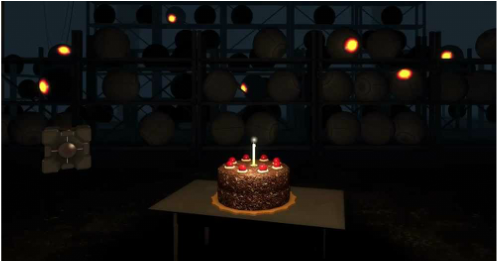
In others, the ending was a surprise to absolutely no one, because a prophecy had already spoiled the ending long before it could happen.
The downside to having a prophecy:
Having a prophecy about your plot or protagonist has one obvious drawback: it spoils the ending of the story, and removes much of the dramatic tension that you otherwise could have built.
When the audience knows how the story will end, it takes a lot of skill to avoid making them feel like you're simply going through the motions. Some storytellers don't have that skill, so the prophecy ruins what could have been a good story.
Can you include a prophecy without spoiling your whole story?
Sure you can - if you do it right.
Here are a few ways you can include a prophecy in your tale, without it being a massive drama-killing spoiler:
1. Make the prophecy ambiguous.
Maybe the prophecy says a kingdom will fall - but it doesn't say WHICH kingdom.
Perhaps it warns of a sacrifice, but you don't know who will be lost in order to resolve the conflict.
Or maybe it was foretold that an angel will bring freedom, but there's debate about whether that means a good angel will bring freedom from imprisonment, or an angel of death will force people to accept "freedom" from this mortal coil.
A good fictional prophecy will have enough specifics to raise questions and make it clear when the prophecy is fulfilled, but enough ambiguity that it doesn't explicitly lay out how the story will end.
2. Make it unclear who the prophecy's about.

This kind of uncertainty can make the protagonist question their actions, their motives, and their role in the adventure as a whole.
A jealous or egotistical character might become suspicious of anyone who might "steal" their role, while a more passive or weary person might hope that they can find the "real" subject of the prophecy and thus relieve themselves of a harsh obligation.
By making the prophecy unclear, you can turn it into a plot-and-character-development-driving question, instead of a plot-spoiling fact.
3. Have the characters question whether the prophecy is true.
Is the prophecy actually accurate, or are the characters making a fatal mistake by basing their strategy on something that isn't actually going to happen?
Is the character doing what they're doing because it's right, or because they think they're "supposed to" because of a prophecy that might not even be true?
Raising this question can bring a lot of fear and uncertainty into the story, and can also cause conflicts between characters who believe the prophecy and those who don't.
It can also serve to highlight the cooler heads in the cast - those who are able to incorporate the prophecy in their plans, while creating a backup plan just in case the foretelling turns out to be a load of bull.
4. Fulfill the prophecy in an unexpected way.
If you can fulfill the prophecy to the letter, but do so in a way that the audience doesn't expect, you can have the cake of solid foreshadowing and have your readers enjoy eating it, too.
But whatever you do, do not...
1. Use the prophecy as the sole reason why the protagonist has to do something, with no plausible reason why that should be the case.
2. Make the prophecy the only reason why it HAS to be the protagonist, when other characters are much more plausibly suited for the task.
3. Spell out the end of the story through the prophecy, and then do exactly what was foretold, with no twists or additional requirements to create a happy ending.
If you avoid these three traps, and use one or more of the plot-twisting or question-raising techniques that I outlined above, you should be able to include a prophecy about your plot, without making that plot predictable.
Do you use prophecies in your stories?
Did any of these tips help you to make your prophecy plots more interesting?
I look forward to reading your comments.

 RSS Feed
RSS Feed